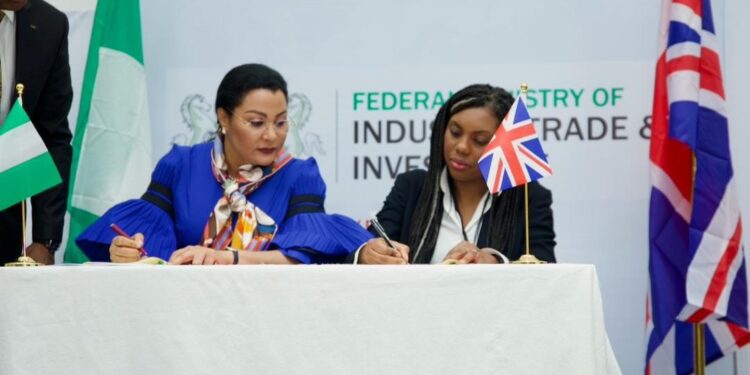The Federal Government of Nigeria has backtracked on its previous announcement regarding the legal aspects of the Enhanced Trade and Investment Partnership signed with the United Kingdom on Tuesday. The decision to retract the statement follows public criticism over the perceived one-sided nature of the Memorandum of Understanding (MoU) signed between the two nations.
Nigerian Minister for Trade and Investment, Doris Uzoka-Anite, took to social media platform X to clarify the situation. In a thread, she emphasized that there is no legal agreement between Nigeria and the UK that allows UK-licensed lawyers to practice in Nigeria, contrary to earlier reports.
In her statement, Uzoka-Anite acknowledged the earlier mistake in reporting, stating, “Regrettably, our earlier report erroneously suggested that Nigeria has signed a Memorandum of Understanding that allows lawyers licensed in the United Kingdom to practice in Nigeria. We wish to state emphatically that there is no such provision or agreement in the MoU.”
She clarified that Nigeria does not have a Mutual Recognition Agreement with the UK, and there is no commitment, either in the MOU or elsewhere, to allow UK-licensed lawyers to practice in Nigeria. Foreign licensed lawyers, including those licensed in the UK, currently cannot practice in Nigeria, as explicitly stated in the MoU.
Uzoka-Anite also noted that the issue of cross-jurisdictional practice between Nigeria and the United Kingdom is an ongoing conversation among relevant stakeholders within the legal practitioners community in Nigeria, and this was reflected in the MoU.
The initial announcement had come from a statement by the UK’s Department of Business and Trade and a tweet from Nigeria’s Minister of Trade and Investment, suggesting a deal to remove barriers preventing UK lawyers from practicing international law in Nigeria. However, the Nigerian Bar Association criticized the purported agreement, calling the statement by the minister “ridiculous, unpatriotic, and uninformed.”
The retraction aims to clarify the actual content of the MoU and alleviate concerns about the legal implications of the trade partnership between Nigeria and the United Kingdom.
























